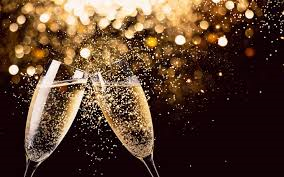1. having lived for a long time; no longer young
2. belonging only or chiefly to the past; former or previous

A few of my friends and I were celebrating one of our birthdays. Gayle, the friend whose birthday we were toasting, has just turned an age that marks another decade. It's one of those birthdays that ends in zero. That's time for pause for most people, and becomes even more noteworthy the older one gets.
Aging is not for the faint-hearted. If turning an age as young as thirty causes someone an existential crisis, they must be living their lives in constant fear, because every sunrise makes them another day older, although clearly not any wiser. Hopefully that changes with the passing of time.
Fearing birthdays that end in zero is not one of my problems, I'm glad to say. Regular readers of this little web of mine know that I mark my age in days, and not just years. Every day is a diaversary. So for someone like me it makes annual celebrations extra special since they happen only once a year. And when it's a big-0 birthday, which is the kind of birthday my friend Gayle is having, it's cause for even more merrymaking, because it won't be happening for another ten years.
Though I won't divulge more details, most people would acknowledge that a memorable birthday like Gayle's has officially entered into the "old" category, (Of course, the younger and stupider one is, one is "old" at a relatively young age. You know, like, thirty-three is, like, so old.)
Gayle is the oldest of the four of us that got together to eat, drink and be merry, but none of us is young or even middle-aged anymore. Although we are by no means stooped and doddering, I used the word "old" to describe our group as we sat around and talked about life and the number of birthdays we've accumulated.
"No, no. We're not old!" one of my friends exclaimed. I understood why she responded as she did, because the adjective old applied to human beings has distinctly pejorative connotations. When I judiciously describe someone as old, including myself, it's usually (but not always, depending on the person) referring to the number of years they've lived, and not their appearance or demeanour. Check out the first meaning of the adjective old at the beginning of this blurb. There's nothing disparaging about having lived a long time. In fact, it can be a good thing, depending on the amount of experience and wisdom one has acquired, and of course, one's physical condition.
Being old is unfortunately equated with loss of vigour and beauty. Sure, it happens to everyone. But why not enjoy the slower pace of life and a different kind of beauty which happens with living longer? The later years of life are sometimes described as the "sunset years." Though there is an inherent sadness in sunsets that presage the arrival of the dark, I love a splendid sunset. As the sun sinks lower on the horizon, its colours and those of the surrounding sky become deeper and more vivid. Old and dying trees are still admired for their gnarled, twisted forms and the striking silhouettes they make. And the ruins of ancient, crumbling buildings all over the world are highly regarded tourist attractions, admired for their derelict beauty. Beauty is not just the purview of youth.
And what about the wisdom and experience that come with age? That's surely one of the best things about growing older; and I do mean growing older. If you're going to reach old age, it's better to grow rather than decline while you're getting there.
Wisdom is acquired by learning from experience. Wisdom is earned. One of the attributes of the Snake as a spirit animal is wisdom, because it continues to grow until the day it dies. (Animals that grow all their lives are called indeterminate growers.) Another animal that symbolises wisdom is the Tortoise/Turtle, because it's the longest living animal on the planet. And the reason it lives so long is because it takes it's own sweet time travelling through life.
But make no mistake, just because someone is old doesn't mean they're wise. There are a lot of old coots out there who have spent a lifetime honing their ignorant, curmudgeonly ways. That's certainly not the case with my friend Gayle, however. At her birthday celebration she proudly declared her intention to honour her very special day and make the most of the coming decade. Way to go girl!
With each passing year (and day - happy diaversary everyone!) I appreciate the clever, pithy words of George Bernard Shaw more and more - Youth is wasted on the young. There's no better time for advancing than in one's advanced years. Growing old is the surest way to stay forever young.
- g.p.








